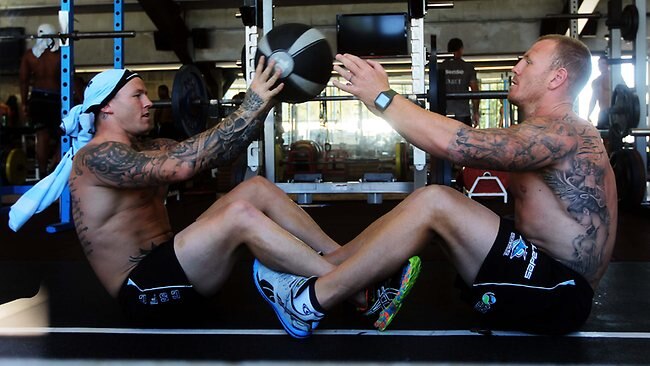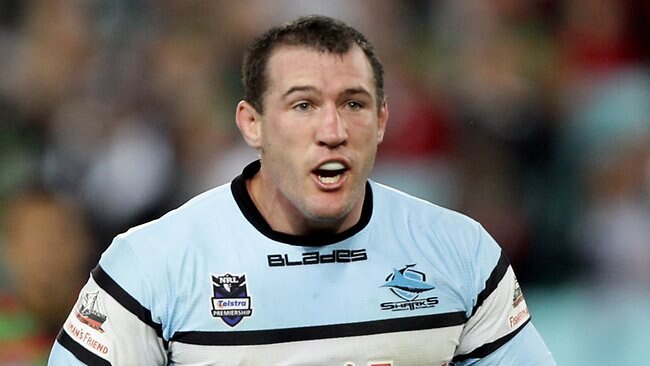Ignorance no help to Cronulla Sharks players in beating doping rap
BLAME it on Trent Elkin, blame it on ignorance, blame it on the boogie, but when the Cronulla players sit down with ASADA it will all mean squat.

BLAME it on Trent Elkin, blame it on ignorance, blame it on the boogie, if you like, but when the Cronulla players sit down with ASADA and begin to offer their case, it will all mean squat.
Under the formidable laws of the World Anti-Doping Agency, the players are solely responsible for what they put in their body. It is not up for contest.
After early suggestions that Cronulla were preparing to offer themselves up yesterday, the gravity of the repercussions slowed their pace and Thursday drifted into Friday.
Presumably ASADA closes its doors for the weekend and won't be contactable before the Sharks play Gold Coast on Sunday, causing many to believe that if anything is going to happen it will happen today.
And while the NRL did issue a statement yesterday confirming the Sharks would be playing, it didn't tell us who would be in the jumpers.
It is now considered a given that at least some Sharks have problems, with Paul Gallen, Ben Pomeroy and John Morris confronting Elkin after their meeting with their legal adviser, former ASADA prosecutor Richard Redman. And they won't be able to plead ignorance.
Anti-doping laws have ramped up since the princess of the pool, Sam Riley, went down with a headache and her coach Scott Volkers gave her a "headache tablet" which might or might not have had its label scrubbed off. It was the moment Australia lost its innocence.
Volkers' actions resulted in Riley using up everybody's Get Out Of Jail Free card and since then WADA has made it harder for athletes to plead ignorance.
It got so tough that it goes beyond what any of the Cronulla players are capable of pleading.
Eleven years ago Scottish downhill skier Alain Baxter walked into a pharmacy before the Winter Olympics in Salt Lake City, looking for something to treat his sniffle.
Given it was the Olympics, Baxter was on high alert. He spied a Vicks inhaler which he had used in Scotland and which he knew was not on the banned list. He bought the inhaler and went on to win bronze, Britain's first medal in alpine skiing.
Then he failed the drug test. Even though it came in the same packaging with the same label, it turned out the US version of the Vicks inhaler was slightly different and contained an almost insignificant amount of methamphetamine.
The International Ski Federation believed his version - how easy it was to make that mistake - and suspended him for just three months. It was later overturned on appeal.
The International Olympic Committee stripped him of his bronze medal. His appeal failed and the medal is now with someone in Austria.
The Sharks have pleaded innocent. They claim they began taking the drugs when they were legal, as they were in 2011, but failed to realise the drugs were banned in 2012.
Privately, some players have blamed it all on Elkin. Perhaps they did not realise his livelihood was at stake as much as theirs, or perhaps they just did not believe his career was as important as theirs.
Elkin claims to be innocent, acting only on the instructions of sports scientist Stephen Dank, who was still there at the time and who assured him the peptides were legal.
Yet Elkin now believed he was being framed as the architect in a bid to strengthen the players' claims of naivety. So he spoke to ASADA and after initially criticising the Australian Crime Commission's press conference, it found a voice.
In other words, it worked.
That's why Cronulla's legal advice changed so dramatically on Tuesday, when Redman was believed to be tipped off about new evidence.




